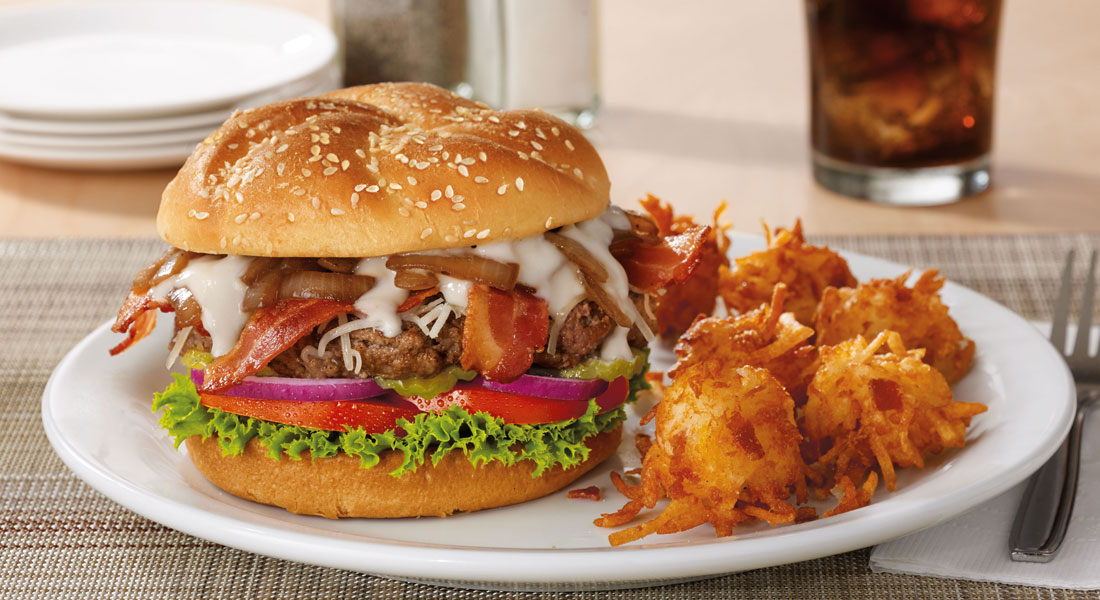Although 220 Denny’s restaurants were impacted by Hurricane Harvey, Irma, and Maria in Texas, Florida, Georgia, South Carolina, and Puerto Rico, the chain still posted positive sales gains for the third quarter. In fact, hurricanes added a positive 0.1 percent impact to the brand’s quarterly financials.
Many affected restaurants reopened one week after landfall, though curfews and staffing availability required them to operate on condensed hours. Only one company store in Houston is currently closed, yet five franchise stores in Puerto Rico remained closed and are not expected to reopen this year.
“Despite the temporary closings, these storms had a slightly positive impact on overall same-store sales results during the quarter,” said John C. Miller, CEO, president, and director of Denny’s Corporation, in the earnings call. “Despite the ongoing challenges in the full-service dining category, our consistent performance reflects the positive impact of our brand revitalization initiatives, which support our commitment to achieving our vision of being the world’s largest, most admired, and beloved family of local restaurants.”
Though Denny’s first quarter gave the brand a rocky start, gains posted in the second quarter continued into the third.Total operating revenue grew by 3.1 percent to $132.4 million, and adjusted net income per share grew to $0.14, or 11.2 percent, compared to last year. Company restaurant sales were also up by 5.1 percent, growing to $97.9 million. These increases have largely been attributed to the fact that the brand has more company-operated stores this year, along with year-over-year growth in same-store sales, though Miller reaffirmed the brand’s commitment to it’s 90 percent franchise business model.
Although the company restaurant operating margin was $16.6 million versus last year’s $16.0 million, this year’s figure only equals 16.9 percent of sales versus 17.2 percent for the quarter in the prior year. This was driven by expected product cost and minimum wage increases, but was partially offset by sales and favorable workers’ compensation.
Major strategic initiatives, like the Denny’s On-Demand delivery platform, drove third-quarter gains for casual-dining chain. As a result, off-premise sales were increased by 1 percent, and off-premise now accounts for an about 8 percent of total sales.
The brand’s partnership with Olo for mobile ordering platforms has lead to $12 million in year-to-date sales, helping the brand capture millennial and Gen-Z diners.
“These to-go transactions continue to be highly incremental,” Miller said. “[They are] over-indexed at the late-night and dinner dayparts and skewed towards the younger 18 to 34-year-old demographic.”
Other partnerships with Postmates, GrubHub, DoorDash, and UberEATS account for 34 percent of delivery orders within the domestic system, and 47 percent of the domestic system has delivery options available.
Additionally, Miller said brand remodels are generating “mid-single-digit range” sales increases, as 57 franchised stores and 1 company store completed the brand’s Heritage Remodel program.
“With 61 percent of the system currently on the Heritage image and an expectation of 75 percent of the system will have the new image by the end of 2018,” Miller said. “Remodels will continue to be a significant tailwind for the brand over the next few years.”
The brand still expects same-store sales growth to range between flat and positive 2 percent for the year, though guidance revised new store openings to 40–45 openings and net restaurant growth to 5–10 restaurants in 2017.
Despite a lower first quarter, Denny’s strategic initiatives—especially mobile and delivery programs—are paying off. At a time when most other brands keenly felt the impact of this year’s active hurricane season, this classic American chain stands out as a winner.







